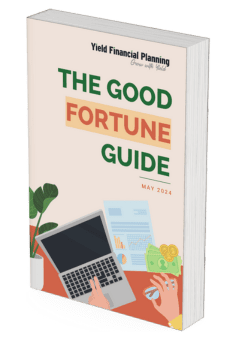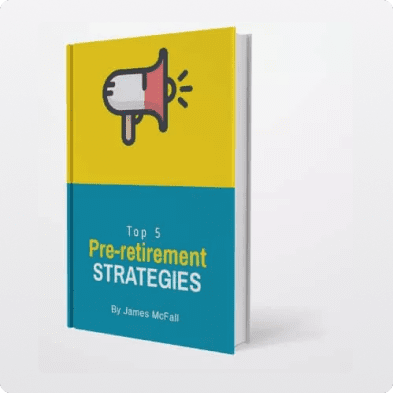Establishing a small business succession plan
Owning and operating a small business, is not a small task. From creating the idea of the business at its inception, to running it in an efficient and profitable manner, hiring staff, training staff, managing accounts, and so on. Then at the end you want to be able to exit your business with a smooth succession, which is where many business owners come unstuck.
Throughout this article we will delve into ways you can plan a small business succession pathway internally, including how you can transition your staff and ensure all parties are sufficiently equipped with new management to set the business up for success without you, while also structuring your succession to ensure you receive fair compensation for the business you have worked hard to grow.
This article forms part three of our business series. If you would like to read our first two articles “Outlining a business exit strategy” and “Selling your business?” feel free to click the links provided.
What qualifies as a small business/SME?

A small business or commonly referred to as an SME (small and medium enterprise) can be quantified as businesses that make less than $10Million in annual revenue and have less than 50 staff. However, there are no strict guidelines that label a business as “small”, and there can be big variances between product and service businesses for example, so the term is used fairly loosely to describe a business.
Already convinced on exiting
Depending on where you are at currently in your business succession journey, part one of our business series, ‘outlining a business exit strategy’, can provide some benefit and insight on how you approach your business exit. For those of you that are clear that passing your business on to internal stakeholders as your preferred pathway, then there will be considerations and ideas throughout this piece on how you can go forward with the process.
Replacing a small business owner
One of the complexities small business owners face when planning their own exit is the amount of hats that a business owner wears. Have you ever done your own position description before? If you haven’t, then chances are it will uncover that on any given day you act as CEO, HR, Operations, Financial Controlling, Marketing and Technician interchangeably. Read the E Myth Revisited by Michael Gerber for more on this. Its one of the best business books written on the topic.
Early days of a business this is usually out of necessity, however as your small business grows and develops, there is an opportunity to start to hire for roles that you need done. Depending on where you are at in your small business journey, it is likely that when you get down to it, the things that you do in your business, which contribute to your business success are varied, and for an internal succession to be successful, you need a plan for how this is going to be accounted for.
Establishing your transition plan
Ideally you have started the business with the end in mind and have been working towards this from day one. The reality is that this almost never happens! Don’t worry too much about this, because the fact you are thinking about it now, means that you can start to do something about it today.
Start by pulling out your organisation chart. This will help you see what talent you have already in your team, as well as gaps that currently only you can fill. Depending on the size of your business there will likely be either a promotion throughout middle management or external hiring that can help you.
To execute an internal succession plan well, it will not happen overnight. This method of business succession is about playing the long game – at least a few years – invested in the right people to keep delivering what the business will lose when you leave. With this said, for many small businesses it is the best way for a business owner to exit, when you have the time, people, and plan for success.

Are your staff ready?
The internal succession plan may already be clear to you. You’ve been training a staff member or staff and slowly been introducing them to more of your work, while you have been simultaneously easing off. Sound like you? This is fantastic if you have, as it will make the transition process much easier for you and the business as a whole. Approaching succession this way helps to minimise risk of harm to your business operations as well. Furthermore, this is the most common approach to succession planning for small business we see, and that we help our clients plan for, because you can develop trust that the staff you have chosen as your best successors, will be competent and ready to take over from you. Training them on the ins and outs of the business is therefore vital to small business succession and to those you leave in charge.
Realising business value
Depending on the business you have, internal business succession may or may not be what drives the highest sale price for you. An SME tradesman business for example may have little or no goodwill value to the wider market, apart from its physical assets. However an employee or employees that have been loyal and that have deep relationships with your customers and understand your business value proposition may well see value in the goodwill, if you help them make the transition to becoming business owners for themselves successful.
Conversely you may work in a business where your business is in higher demand in the open market and you may even be prepared to take a lower price from an internal succession, to help ensure that your customers get a reliable handover from you and to help ensure that the business you built or helped build, has a lasting legacy.

Management structure of a small business
Middle management can play a substantial role in a successful business succession plan, as they are potentially more involved in the day-to-day operations than the owner. They also usually tend to look after and ensure more junior or less experienced staff members are keeping on track. Often it will be a middle manager that has interest and steps up to want to be a future owner, however this is not always the case and in either scenario there needs to be plan to manage the change.
For example, the domino effect of promotion to a directorship role, may mean that the middle management role needs to be hired externally. Let’s say in light of you leaving your business you promote a middle management staff member to director. Now that middle management spot has been left open so you might promote one of the junior staff to middle management to fill the vacant role, which in turn leaves another role to fill.
A different example of the importance of middle management may be how your trusted manager responds to the news that one or more of their peers has put their hand up to take over ownership. In order to create continuity, this needs to be thought through and most importantly communicated well in advance to manage the change while maintaining as much stability as possible.
Hiring externally
External hiring is something almost all SME business owners will have encountered over the journey. Reflecting on these experiences you will know that there are several factors that can influence how successful your hire is.
In the context of a hire for a small business succession, it will normally pay to include your core team that you do not want to lose or who’s role you are replacing in the process. This can be as little as the courtesy of being informed and asked to share thoughts, to full inclusion in the decision making process.
The interview process is one of the key aspects of hiring externally, and for potential candidates, it is equally important that they are kept informed of what is going to happen and why you are hiring. This is because in a small business there is a greater expectation from team members to be informed. Moreover, to create the continuity you are looking for, the better informed you keep the whole team, will lead to empowerment at all levels. This sense of team creates the conditions for buy in, to help support the objectives you have for your business succession, including support for the successors, and helping them find their way to settle in.

Trusting your staff
Being able to trust your staff and those running your business once you retire will help you avoid headaches and sleepless nights. It might be difficult initially, letting go of your business that you have put so much time and effort into, however allowing the transition to happen in a planned and empowered way, will help ensure your successor can have the business managing the change and thriving as quickly as possible. Having a trusting mindset will also free your mind to what is next for you. If you haven’t already spoken about your financial plan by this point, it is logical to do so now, but in reality, you should be talking to a financial planner early in the succession process, as they will be able to help you relate your business plan to your personal financial planning objectives along the way.
How Yield can help
Our advisors are some of the best in the industry, having received numerous awards, they have over 100 years in combined experience and are specialists in supporting the needs of business owners. As a small business owner, we will help you bind your business plan to your personal plan, leveraging off the business structures you have in place to help you manage your tax outcomes and enhance your income earning opportunities in the future, as you transition from relying on your business.

















